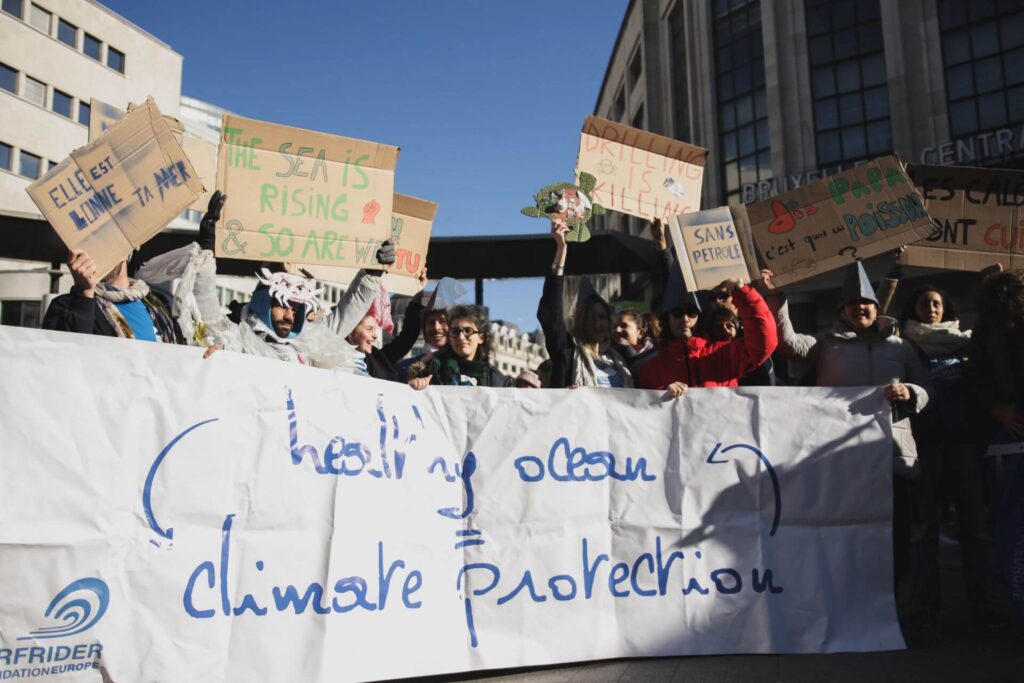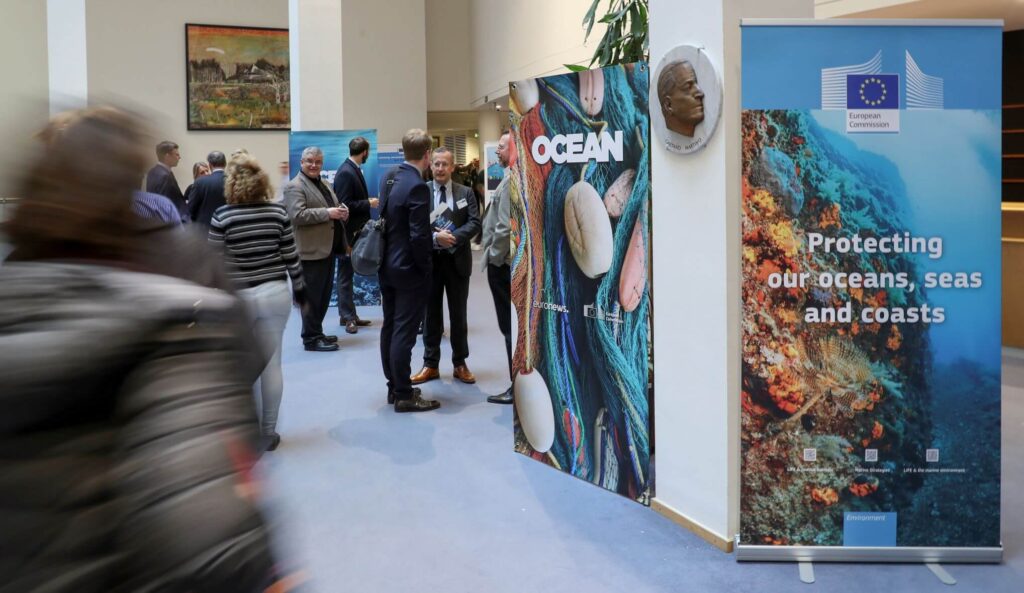Why the European Elections Matter for the Ocean?
EU Elections 2024: A Make-or-Break Moment for Ocean Health and Sustainable Policies.
The ocean and seas are essential sources of nourishment, energy, livelihoods, and leisure activities, contributing significantly to our well-being and shaping our culture. They generate roughly 50% of the Earth’s oxygen and are the largest ecosystem on the planet. The ocean also regulates our weather, absorbs 90% of the excess heat on our planet and captures up to one-third of our CO2 emissions, making it one of our greatest allies in the fight against climate change.
An ocean emergency

However, as human use of the ocean intensifies, various activities happening both on land and at sea are increasingly straining this remarkable natural environment. Pollution, overexploitation, habitat and biodiversity loss, and the influence of climate change all threaten the ocean and its resilience.
Biodiversity in the ocean continues to collapse, toxic substances are being released in the ocean in unprecedented manners, coral reefs are disappearing, the level of our seas as well as their surface temperature are rising, the acidity of the ocean is increasing with a multiplication of dead zones in the ocean, and plastics are killing marine life. The list could go on for some time and gives us a lot of reasons to worry… and to get mobilized.

The European Union: a blue continent
Europe holds the world’s largest maritime territory, and, with over one-third of the European population living along the coast and almost 3.34 million people depending on the ocean and seas for their livelihood, the European Union (EU) is deeply connected with the sea. This connection also originates from the responsibilities given to the European Union, be it on the conservation of marine fishery resources, environmental protection, energy, transport, or climate change, to name only a few.
The ocean emergency makes the mobilization ahead of the EU elections in June 2024 vital.
The decisions on these latter topics are mostly taken in Brussels and have an incidence in the 27 Member States of the EU, and in the entire world. In many areas, legislation in the EU has been an inspiration and a driving force for other states worldwide. But everyone knows that with great power, also comes great responsibility.
The 2024 EU elections: a game-changer for the ocean

The ocean emergency therefore makes the mobilization ahead of the EU elections in June 2024 vital. The Green Deal agenda of the EU – its commitment to reach carbon neutrality by 2050 – has shown it can achieve significant progress for the planet when there is greater political will. However, the upcoming European Parliament election offers as much an opportunity as a threat to ocean health depending on the outcomes.
Potential for bold policies on ocean protection is there, but for the EU to deliver for the ocean and the communities that depend on it, it will need public pressure and committed elected leaders at the very top with clear ideas on what to do to reverse the decline of ocean health.
Depending on the outcome, the 2024 European Parliament election offers as much of an opportunity as a threat to ocean health.
With an eye on all these challenges and opportunities ahead, European Ocean NGOs have joined forces under the Blue Up 2024! campaign to bring citizens’ voices to the institutions and to call on decision-makers to take action in the form of 10 top demands to European political parties:
- Reduce pollution in all its forms
- Transform the blue economy
- Mitigate the impacts of climate change
- Preserve coastal areas
- Protect marine ecosystems through effective protected areas
- Halt the loss of marine biodiversity
- Preserve the Ocean for the health of Europeans
- Strengthen the monitoring of marine pollution
- Build a more inclusive and sustainable governance
- Include the Blue community
Naturally, the EU does not hold exclusive responsibility for our collective failure to achieve a healthy ocean and the targets we had set for ourselves at the global level as part of the UN Sustainable Development Goals. However, its leadership will be instrumental… whether we like it or not.